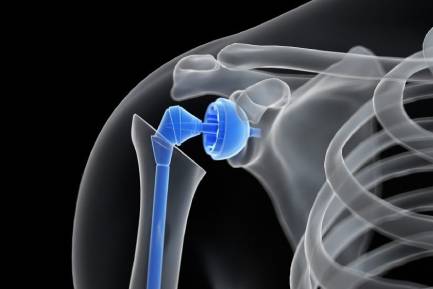
Shoulder replacement surgery is a surgical procedure that involves removing damaged parts of the shoulder joint and replacing them with artificial components. This procedure is usually performed in people who suffer from severe arthritis or other conditions that cause chronic pain, stiffness, and limited mobility in the shoulder.
There are two main types of shoulder replacement surgeries: total shoulder replacement and reverse shoulder replacement. Total shoulder replacement involves replacing both the ball and socket of the shoulder joint with artificial components. Reverse shoulder replacement, on the other hand, is used when the rotator cuff muscles are damaged or torn, and involves placing the ball component on the shoulder blade and the socket component on the upper arm bone.
Shoulder replacement surgery is typically recommended when conservative treatments such as physical therapy, medications, and injections no longer provide relief from shoulder pain and stiffness. The procedure is usually performed under general anesthesia, and involves making an incision in the shoulder area to access the joint. The damaged parts of the joint are then removed, and the artificial components are placed in their positions. The incision is then closed with stitches or staples.
After surgery, patients will usually need to stay in the hospital for a few days to recover. They will need to wear a sling for several weeks to allow the shoulder to heal properly. Physical therapy will be required to regain strength and mobility in the shoulder. Most patients can expect to return to their normal activities within three to six months after surgery.
Shoulder replacement surgery has been shown to be highly effective in relieving shoulder pain, improving range of motion, and restoring overall quality of life in people with severe shoulder joint damage. However, as with any surgical procedure, there are risks and potential complications, such as infection, blood clots, nerve damage, and implant failure. Your surgeon will discuss these risks with you before the procedure.
If you are experiencing chronic shoulder pain and stiffness, and conservative treatments are no longer providing relief, you may be a candidate for shoulder replacement surgery. Talk to your doctor about your options, and find out if shoulder replacement surgery is right for you.
If you’re experiencing knee pain or joint issues, seek expert care from Dr. Pramod Kumar Surve, a Shoulder Replacement surgeon in Hadapsar with 15+ years of experience. He offers comprehensive treatment for shoulder, knee, ankle injuries, and hip and knee replacements, including spine care. Start your journey to a pain-free, active life by consulting Dr. Pramod Kumar Surve today.
